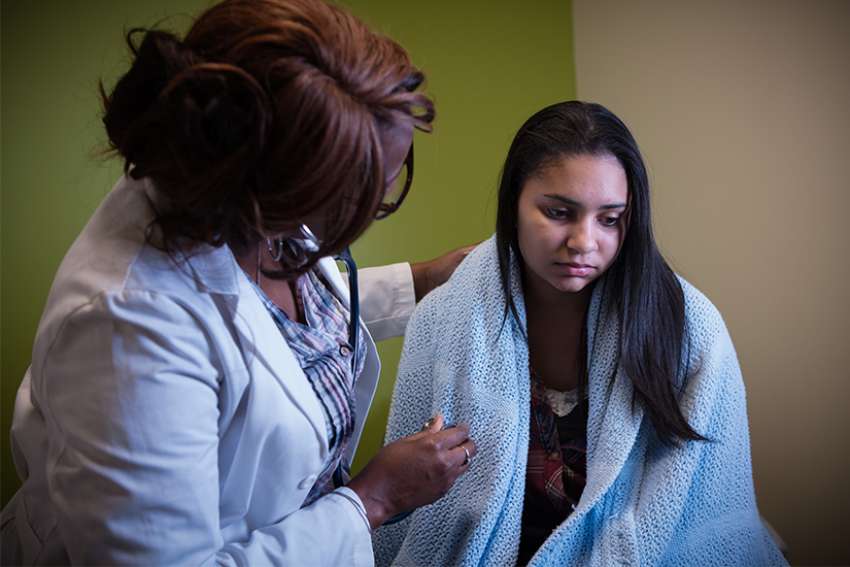As of Feb. 22, calling 1-833-999-9211 can put a victim of human trafficking in touch with lawyers, police, counsellors and safe housing. It’s the latest addition to a $72-million arsenal of programs the provincial government has deployed to protect the women and girls who are overwhelmingly the most frequent victims of human trafficking.
The Ontario phone number is backed up by the Twitter handle @StopTrafficking and the hashtag #NoHumanTrafficking. About 65 per cent of Canada’s reported human trafficking takes place in Ontario.
However, the Faith Alliance to End Human Trafficking worries that the province is ignoring exploited labourers in its rush to put a lid on the trade in vulnerable women and girls.
“Exploited workers are even more hidden than victims of sexual exploitation,” said Sisters of St. Joseph of Toronto Ministry for Social Justice, Peace and Care of the Earth director Leah Watkiss, part of the Faith Alliance.
“It is imperative that the province make a concerted effort to address the barriers that prevent them from seeking help and to make them aware of the supports and services that are available to them.”
It’s not that the Faith Alliance partners are not aware that about 70 per cent of reported cases in Ontario involve sexual exploitation or forced prostitution. The Faith Alliance calls the launch of the helpline “great news” that will “strengthen and simplify the referral process and help with data collection.”
A similar toll free line in the U.S. received 27,201 phone calls in 2016. It also fielded 1,580 e-mails and collected 2,137 online tips through its website. Since 2007, humantraffickinghotline.org has dealt with 38,304 high-risk cases of probable human trafficking and another 40,466 moderate-risk cases.
“These (U.S.) figures demonstrate how great the need is for such a service,” Watkiss said in an e-mail.
“While happy with the news, Faith Alliance is concerned that, like its other measures, the province will focus this effort solely on women and girls who are sexually exploited. Other forms of trafficking, including labour trafficking and forced marriage, are consistently being overlooked.”
Toronto’s Covenant House, which has counselled and protected exploited girls for decades, was consulted on the launch of the helpline.
“We believe that this helpline is a great first step in the fight against the trafficking and exploitation of women,” said Covenant House executive director Bruce Rivers.
“It will raise awareness about the issue of human trafficking, provide victims with access to a variety of supports and services and it also validates a victim’s experiences.”
In 2016 Covenant House opened Rogers Home, a safe and supportive home that houses seven young women for up to two years with full medical, psychological and educational supports so they can restart their lives.


